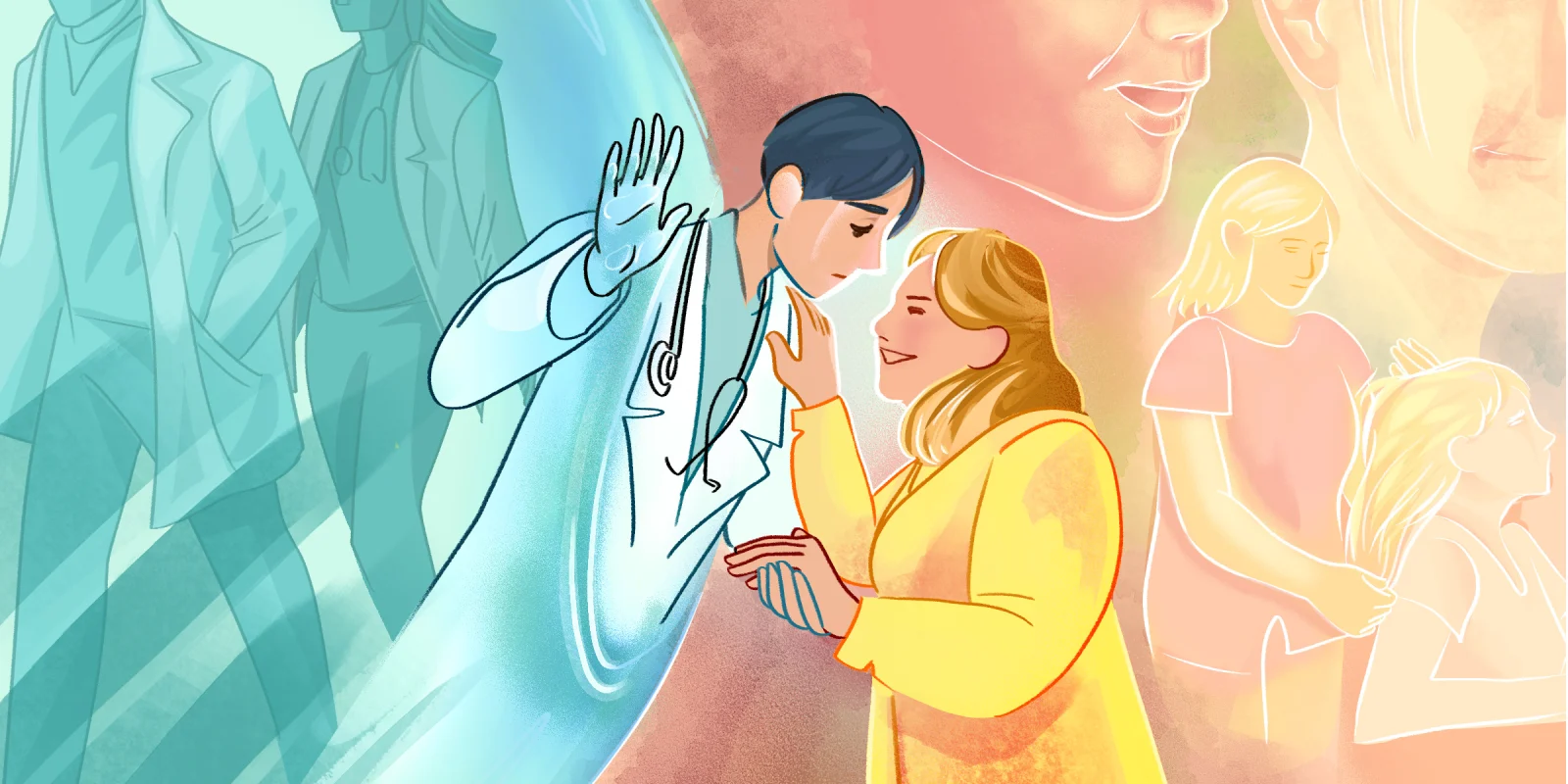Early winter mornings on the gynecological oncology service were a bleak way to start my clinical year. Arriving at the hospital in the cold and desolate darkness to pre-round on my patients made clinical work seem even more daunting than I had imagined as a pre-clinical student. The weather matched the diagnoses. The bite of New York’s winter wind was a reminder from the universe that this was not going to be easy and it certainly was not going to be fun.
Then I picked up a patient who turned that all around.
Ms. G was a splash of sunshine. She smiled big, laughed when I made a quip, welcomed me in her space, and even liked to hold my hand. She was grateful and generous with her warmth, and she told me every morning that getting to talk with me was the best part of her day — even if I did wake her up at 6 a.m. Going in became easier because time with her felt rewarding.
We talked about her life. She told me about growing up in Central America with her sisters, about immigrating with her husband. How she left him and raised her three children alone because “the man just couldn’t help himself from fooling around, and I simply didn’t have time for it.” We discussed her doubt about religion, but how she prayed every day. She talked to me like a close friend. When her son came to visit, he greeted me with a smile. “I couldn’t wait to meet you!” When she was finally stable enough to be discharged, I felt part of their celebration.
Her diagnosis, however, was one of the grimmest. Her metastatic ovarian cancer had spread to the crevices of her upper abdomen before it had even been detected, deterring even the most skilled surgeons from performing a complete resection. The debulking procedure was a brutal 10-hour surgery.
Despite her unresectable mass and poor prognosis, and a difficult post-op recovery that included an ileus and a small pulmonary embolism, Ms. G felt triumphant as she returned home. We stayed in touch. She told me that she loved to hear from me, even if I didn’t call as often as she hoped.
In late summer, I realized that we had not spoken for more than a month. I took a look at her chart and saw that she had been readmitted. My heart sank. The next day I went to visit her on the oncology floor. I knew from the notes she was receiving palliative care. I thought maybe we could have a long talk; we had talked about death and God before. When I found her, my heart sank further. She was in pain, dying from metastatic cancer resistant to pain control. I wanted to cry.
She was short of breath and said she could not talk long. “That’s OK,” I replied, “whatever you need. I just wanted to see you.” I tried to smile. She whispered, “I’m so glad you came. I wanted to see you.”
She asked how my mother was doing. I told her that she was well. “Good,” she responded, “cherish that.” I promised I would come back after her NG tube was removed. She thought that might make talking easier.
Two days later, I got a call from my step-brother. “Your mom passed out this morning. It’s not clear what’s going on, but she’s in an ambulance going to the hospital.” Two hours after that, my sister called me weeping: “Mom is on a helicopter to a different hospital. They said something about a ‘dissection’?” I started to cry in a random hospital hallway.
I told my chief resident I needed to go, then found my best friend who I knew would help me figure out what to do. “You can either stay here to take care of other people’s mothers,” he said, “or you can go back and be with your own.” He was right.
I flew home, rented a car, and sped to the hospital, arriving before the six-hour surgery had ended. In the waiting room, my family tensely waited for some news. Finally, the cardiothoracic surgeon emerged and carefully explained how my mother’s aorta had ruptured into her pericardium, miraculously clotting off the bleed; how the timing had allowed him to crack her chest with time to spare. How she was a lucky woman. How she was going to be just fine. A wave of relief washed over all of us.
I spent the next three weeks by my mom’s side, helping her recover in the hospital and return home. We talked, laughed, and generally counted our blessings. She was incredibly happy to have me with her. I was so happy she was alive and with me.
Remembering I had promised to check in with Ms. G, I texted a friend asking for an update. This time, the news was somber; she had passed away a few days prior. In rushing to my mother, I had missed the chance to comfort someone else’s.
I will always have overlapping duties as a doctor. My time, energy and focus are finite; one clear, properly motivated action will come at the cost of another. It is easy to think this means I will miss out on important moments, or that I may disappoint some for the benefit of others. But the antidote is to recognize that each experience is special. All the time I spent with Ms. G will never be taken away. Family priorities and patient care don’t have to conflict. One gives meaning to the other.
Ms. G’s pain clarified the importance of being with my own mother. My decision to go home put into clear focus how important a relationship with a patient can be. I hope to cultivate an ability to recognize the power and beauty of both responsibilities and to cherish them as interconnected elements of my practice.
How have your personal and professional lives overlapped? Tell us your story in the comments!
All names and identifying information have been modified to protect patient privacy.
Illustration by April Brust







